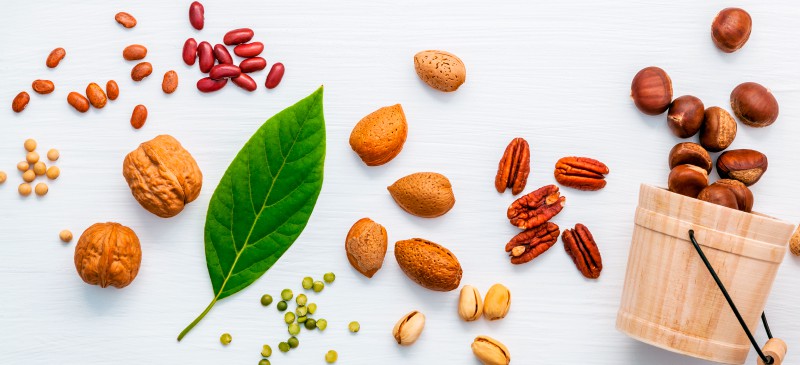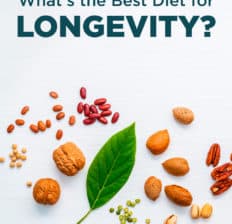This Dr. Axe content is medically reviewed or fact checked to ensure factually accurate information.
With strict editorial sourcing guidelines, we only link to academic research institutions, reputable media sites and, when research is available, medically peer-reviewed studies. Note that the numbers in parentheses (1, 2, etc.) are clickable links to these studies.
The information in our articles is NOT intended to replace a one-on-one relationship with a qualified health care professional and is not intended as medical advice.
This article is based on scientific evidence, written by experts and fact checked by our trained editorial staff. Note that the numbers in parentheses (1, 2, etc.) are clickable links to medically peer-reviewed studies.
Our team includes licensed nutritionists and dietitians, certified health education specialists, as well as certified strength and conditioning specialists, personal trainers and corrective exercise specialists. Our team aims to be not only thorough with its research, but also objective and unbiased.
The information in our articles is NOT intended to replace a one-on-one relationship with a qualified health care professional and is not intended as medical advice.
New Research Defines the ‘Longevity Diet’ Guidelines
May 23, 2022

We’ve all been told time and time again that food is medicine, and it has the ability to alter our health and functional capacity. However, factors regarding what, how and when to eat for optimal health are still somewhat controversial subjects, along with what the best longevity diet is.
We can learn from the blue zones that certain dietary guidelines can have a major impact on your life span, but how do we make the knowledge work for the modern American adult?
Recently, researchers used information gathered for over a century to define a “longevity diet,” or approach to eating that leads to a longer, healthier life. What they found was that eating certain foods, and avoiding others, can increase life span by 10.7 years in women and 13 years in men, if started at age 20. If started at 60 years old, the longevity diet can increase life expectancy by eight years, according to the study.
Study Findings: Longevity Diet Findings
An analysis of studies published in April 2022 in the journal Cell focuses on pinpointing nutrition strategies that have been shown to delay aging or prevent disease. Based on the information collected, researchers defined a longevity diet that may optimize life span and health span in humans.
The study concluded that following these dietary guidelines would be a valuable complement to standard health care and can be taken as a preventative measure to avoid morbidity and sustain health into advanced age.
According to researchers, here are the guidelines of the longevity diet:
- Mid-high complex carbohydrate consumption. High complex carb consumption among adults without obesity or insulin resistance will reduce frailty, particularly among the elderly, and provide energy.
- Low but sufficient protein intake that is mostly plant- or fish-based. Protein intake consisting mostly of legumes is ideal, as they contain low content of methionine and other amino acids, which contribute to the reduction of pro-aging activity. Red and processed meats should be reduced or avoided. Mostly sticks to plant-based diet principles.
- Fat consumption should make up 30 percent of energy. This includes healthy, plant-based fats, including nuts.
- Intermittent fasting. A 12- to 13-hour daily intermittent fasting period is recommended.
How to Eat for Longevity
Study researchers pinpointed a set of dietary principles that, based on data, lead to a longer life span. As opposed to a dietary plan, they noted that, more generally, eating a diet rich in complex carbohydrates and lower in protein is ideal.
When it comes to specific food choices, this can look different for different cultures or even preferences, but here’s some starting points for how to eat for longevity and healthspan, based on this recent study:
- Complex carbohydrates make up most of your diet, especially whole grains: Barley, amaranth, brown rice, buckwheat, quinoa, farro, millet, oats, spelt and teff.
- Moderate-low protein intake, especially plant-based protein: Lentils, green peas, quinoa, chickpeas, hemp seeds, pumpkin seeds and nutritional yeast. For meat protein, wild-caught fish is recommended.
- Moderate-low healthy fats: Avocado, extra-virgin olive oil, coconut oil, and nuts and seeds.
In addition to these foods for extending life, nutrient-dense fruits and vegetables provide disease-fighting antioxidants. Some great examples include leafy greens, berries, garlic, onions, herbs and spices.
Avoiding certain foods is also part of the longevity diet, especially red and processed meats. Reducing or avoiding high-sugar foods, products made with artificial ingredients and packaged items is recommended.
What about other natural life extenders? We know that lifestyle changes, like spending more time outdoors, increasing physical activity, engaging in social relationships and spreading kindness, are also effective in increasing life span.
Conclusion
- An analysis of studies published in the journal Cell focuses on defining nutrition strategies that have been shown to delay aging or prevent disease.
- Based on the information collected, researchers suggest a longevity diet that may optimize life span and health span in humans. It includes high complex carbohydrate intake and moderate-low plant- or fish-based protein intake, with moderate-low healthy fat intake.
- Ideal foods, according to the study findings, include whole grains, legumes and nuts, with some wild-fish consumption.
- The longevity diet guidelines also include intermittent fasting for 12–13 hours per day.



